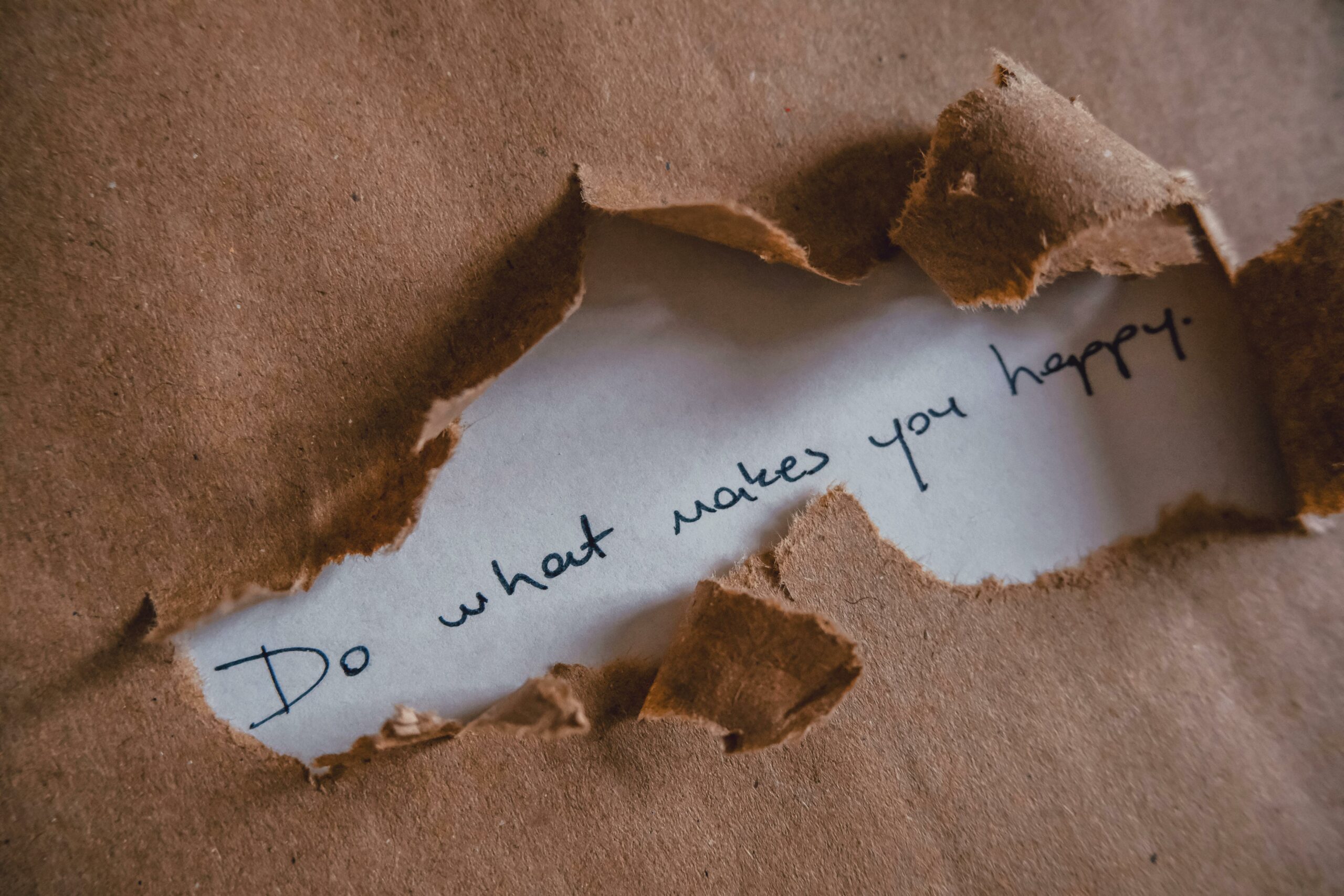In a world where racial identity plays a big role in shaping our lives, I’m not gonna say what race but I can tell you this: it’s a fascinating topic. Ever wondered how cultural background influences our daily experiences? Or how racial stereotypes can impact personal relationships? These questions are more relevant today than ever, especially with the rise of social justice movements. The conversation around race is complex, filled with nuances that can leave us scratching our heads. Why does it matter so much? Have you thought about the power of intersectionality in understanding one’s identity? It’s crucial to delve into these discussions, not just for enlightenment but for fostering a truly inclusive society. The recent trending topics in media highlight the importance of embracing diversity, yet many remain hesitant to engage in these dialogues. Could it be fear or simply a lack of understanding? Join me as we explore the intricate web of race and identity, and uncover why it’s essential to confront these issues head-on. You might be surprised at what you discover! Let’s dive into this compelling journey together, where every perspective matters.
7 Surprising Traits Linked to Your Ethnic Heritage: Discover What Your Race Says About You!
Okay, so let’s dive right into this thing, shall we? I’m not gonna say what race but, you know, it’s kinda wild how people get all riled up about it. Like, I mean, really? What’s the big deal? Not really sure why this matters, but I think there’s something to be said about how we view people and their backgrounds.
First off, let’s talk about the concept of I’m not gonna say what race. It’s like, when you’re in a conversation and someone brings up race, suddenly everyone gets all awkward. You can feel the tension, it’s thicker than molasses in January! But why? Maybe it’s just me, but I feel like we should be able to talk about it without everyone losing their minds.
So, here’s a little breakdown of why we’re all touchy about this topic.
Historical Context:
- People have been fighting over race since forever.
- Wars, civil rights movements, and just plain ol’ misunderstandings.
- And let’s not even get into the “who did what first” debate.
Societal Impacts:
- Race can affect job opportunities, education, and even how people treat you at the grocery store.
- Like, you ever noticed how some folks act differently based on how you look? It’s weird, right?
Now, I’m not saying everyone does this, but c’mon, let’s be real. It’s like walking into a room and feeling the eyes on you. Kinda gives you the creeps if you ask me.
And then there’s the whole “I’m not gonna say what race” thing. It’s almost like a shield, you know? People use it to avoid the awkwardness. You can just see the gears turning in their heads, like, “Do I really wanna go there?” So they just kinda dance around it.
Here’s a fun little table to break down how folks typically respond when race gets brought up:
| Response Type | Description | Example Phrase |
|---|---|---|
| Defensive | People feel attacked and get snappy | “Why are you assuming that?” |
| Evasive | They dodge the question entirely | “I don’t see race, I see people.” |
| Curious | Some ask questions, trying to learn | “Can you explain why that’s important?” |
| Angry | Others get furious about it | “This is why we can’t talk about it!” |
Yeah, that’s pretty much how it goes. It’s like a game of verbal dodgeball, and everyone’s just trying not to get hit.
Maybe it’s just me, but I think if we could just be upfront about I’m not gonna say what race, we could really make some progress. Like, why not just say, “Hey, I notice this thing about you and I’m curious”? It’s not rocket science, but people act like it is!
Also, let’s not forget the memes. Oh boy, the memes. They’re everywhere! They make light of serious topics, and sometimes it’s a breath of fresh air, but other times it just feels like a slap in the face. You know what I mean? It’s like, “Haha, very funny,” but also, “Wait, that’s kinda messed up.”
Here’s a list of some of the more popular memes that are circulating about race these days:
- The “I’m not racist, but…” meme.
- The “My best friend is [insert race here]” meme.
- The “This is why I don’t talk about race” meme.
I mean, who knew memes could be so enlightening yet infuriating at the same time?
And then there’s the aspect of identity. Like, how do you identify? Do you even want to label yourself? It’s such a slippery slope! Maybe you wanna be “just human” or maybe you feel like you need to represent your heritage. But then, if you say one thing, someone might come at you with “Well, that’s not what I see!” Ugh, the struggle is real.
I feel like we need a class or something on how to have these conversations. A “How to Talk About Race Without Losing Your Mind” seminar or something. You could even include snacks, because let’s be honest, snacks make everything better.
So, if you find yourself in a situation where someone’s dancing around the topic of I’m not gonna say what race, maybe try to steer the conversation into a more productive direction. Ask questions, share experiences, and, for goodness sake, don’t just sit there in silence!
At the end of the day, it’s all about
Unlocking Cultural Insights: How Your Race Influences Personality and Life Choices
So, let’s dive into this topic, which I’m not really gonna say what race, but you know, it’s kinda important? Maybe it’s just me, but I feel like everybody’s got their own opinion about it. And honestly, I’m not gonna pretend like I know everything. It’s a whole mess of feelings and thoughts that swirl around in my head like a blender on high, you know?
First things first, let’s just acknowledge that race, whatever it may be, has a lot of layers. It’s like an onion, or maybe it’s more like lasagna? Either way, you peel back one layer and there’s another one waiting to be discovered. But, like, why does it even matter? Not really sure why this matters, but people have all sorts of ideas about it. Here’s a little insight into what’s been swirling around lately:
Quick Facts About Race
- Definition of Race: This term is often used to categorize people based on physical characteristics, like skin color, hair type, or facial features. But hey, who really decided these categories anyway?
- Historical Context: Race has been a hot topic for centuries. In some societies, it’s been used to justify some pretty horrible stuff. Not cool, right?
- Modern Perspectives: Nowadays, people tend to think of race in different ways. Some, like to use it to celebrate diversity, while others might think it’s just a construct. I’m not gonna say what race, but I bet you can guess what side I lean on.
So, here’s the thing, you got people out there who are really passionate about their views on race. And then, you got the ones who just shrug their shoulders and say, “Whatever.” Here’s a quick breakdown of some common perspectives:
| Perspective | Description |
|---|---|
| Celebration | Embracing differences and promoting inclusivity |
| Skeptical | Questioning the validity of racial categories |
| Indifferent | Not caring much about race at all |
Now, let’s talk about how race affects everyday life. I mean, it’s everywhere, right? You can’t escape it. It’s kinda like that annoying pop song that gets stuck in your head. You don’t want to hear it, but it’s there.
Everyday Impact of Race
In The Workplace: There’s still a lot of discussion about diversity and inclusivity. Some companies are trying really hard to be more inclusive. But, let’s be honest, sometimes it feels like just a box-checking exercise. You know what I mean?
In Media: Representation matters. You turn on the TV and see a whole bunch of the same faces. Not really sure why it’s so hard to get a variety of perspectives, but hey, that’s Hollywood for ya.
In Social Settings: Sometimes, you can feel the tension in the air when race comes up at parties or family gatherings. Like, do we even want to go there?
Some Questions to Ponder
- Why do some people get so worked up about race?
- Is it possible to have a civil conversation about it without someone getting offended?
- How does one’s own race shape their experiences?
Maybe it’s just me, but I think people need to chill a little bit. I mean, we all have different backgrounds and stories, and that’s kinda beautiful, right? But at the same time, it’s also messy. Like, how do you even navigate that?
Practical Tips for Conversations About Race
Listen More Than You Speak: Seriously, sometimes you just gotta shut up and listen. People’s stories are important, and you might learn something.
Ask Questions: Don’t be afraid to ask. But do it respectfully, ya know? Like, “Hey, I’m curious about your experience. Can you tell me more?”
Be Open to Learning: Nobody’s got all the answers, and it’s totally okay to admit you don’t know something.
A Few Resources
Here’s a little list of books and articles that might help you out if you wanna dive deeper into this topic:
- “Why Are All the Black Kids Sitting Together in the Cafeteria?” by Beverly Daniel Tatum
- “The New Jim Crow” by Michelle Alexander
- Articles from The Atlantic or The New York Times on race relations
In the end, it’s all about having those conversations, even when they’re uncomfortable. It’s like when you sit on a couch that’s just a little too small for you—awkward, but sometimes necessary. So, yeah, I’m not gonna say what race, but let’s just keep talking about it. You never know what you might
The Science of Race and Identity: What Hidden Secrets Could Your Background Reveal?
So, like, let’s dive into this kinda odd topic of “I’m not gonna say what race.” Not really sure why this matters, but it’s one of those things that gets people all riled up. You know what I mean? Like, why can’t we just, I dunno, talk about it? Anyway, let’s break it down a bit, but, um, prepare for a wild ride.
First thing’s first, race is one of those subjects that feels like walking on eggshells. Everyone’s got opinions, and, honestly, some folks just don’t wanna deal with it. Maybe it’s just me, but I feel like we often tiptoe around talking about I’m not gonna say what race like it’s a taboo or something. It’s kinda silly if you think about it.
So, here’s a thought: why do people avoid saying what race they are? Is it fear of judgement? Or maybe they think it’s not relevant? Who knows? But let’s face it: race can shape experiences, and ignoring it feels like ignoring a big ol’ elephant in the room, right?
Now, let’s list some reasons why someone might not wanna say what race they are:
- Fear of Stereotypes: Maybe they don’t wanna be boxed in, ya know? Like, “Oh, you’re this race, so you must act this way.”
- Cultural Confusion: Sometimes, people feel mixed or just don’t fit neatly into one category. Kinda like, “Well, I’m part this and part that,” and it’s just too complicated to explain.
- Political Correctness: Like, everyone’s so worried about saying the wrong thing, they just avoid the topic altogether. It’s like they think, “If I don’t say anything, I can’t mess up, right?”
- Personal Identity: Some folks just don’t feel connected to their race. Maybe they were raised in a different culture or environment, and it just doesn’t resonate with them.
So, when someone says, “I’m not gonna say what race,” it’s like they’re saying a whole lot without saying much at all. It can mean they’re trying to keep it chill, or maybe they just don’t wanna get into it. Either way, it’s kinda fascinating how race plays into our lives, and yet we sometimes pretend it ain’t there.
Now, let’s get a little deeper. You ever notice how race can be a big deal in social interactions? Like, if you’re at a party and someone asks, “What’s your background?” it can get super awkward if you don’t wanna answer. It’s like, “Do I tell them I’m mixed, or just say I’m American, or what?” The pressure is real, and it’s not just me saying that.
Here’s a quick table of, um, possible reactions when someone says they’re not gonna say what race they are:
| Reaction | Description |
|---|---|
| Curiosity | “Oh, really? Why not?” |
| Judgment | “Hmmm, must be hiding something.” |
| Indifference | “Okay, whatever.” |
| Empathy | “I get it, sometimes it’s just easier not to say.” |
So, like, can we talk about the absurdity of all this? I mean, we live in a world where social media is exploding with all sorts of identities, yet in real life, it’s like pulling teeth to get people to open up. It’s not really that complicated, is it?
And then there’s the whole “I don’t see color” thing. I mean, come on. It’s like saying, “I don’t see pizza” when someone’s got a slice in front of them. Pizza exists! So does race! Saying you don’t see it just kinda ignores all the flavors and textures that come with it. But then again, maybe this is just the rambling of someone who’s overthinking it.
Let’s throw in a few more thoughts. Some people might think that by not mentioning their race, they’re promoting equality. But, um, really, it’s kinda the opposite. Ignoring race doesn’t make it go away. It’s like trying to sweep dirt under the rug. Eventually, it’s gonna show, and then what?
So, moving on, what about the impact of race on relationships? I mean, when you’re dating or making friends, sometimes, race can play a role, whether we like it or not. You might find yourself thinking, “What do they think about my background?” or “Will they understand my culture?” It’s a lot of pressure, and it’s not just
Exploring the Connection: 5 Ways Your Race Shapes Your Perspectives and Experiences
So, let’s just dive right into it, shall we? “I’m not gonna say what race,” is like one of those phrases that pops up in conversations and you’re like, “Huh? What do you even mean by that?” Like, seriously, what are we talking about? It’s kinda like when someone says something super vague and you’re just left standing there, scratching your head, trying to figure out what they’re on about. Not really sure why this matters, but it does, I guess.
I’m not gonna say what race could mean a whole lotta things. Maybe it’s about avoiding stereotypes, or maybe it’s about not wanting to be judged based on color. It’s like, “Hey, I’m more than just my skin color!” And that’s totally fair, right? But then again, sometimes it feels like we’re dancing around the topic, and I’m just here like, “Can we just talk about it already?”
Let’s throw in some examples because, you know, why not? Imagine you’re at a party and someone starts talking about their crazy vacation. Then, outta nowhere, they drop the line, “I’m not gonna say what race I met there.” And you’re like, “Dude, what does that even have to do with the price of tea in China?” It’s just one of those things that doesn’t really connect but makes you think, “Maybe it’s just me, but this is kinda weird.”
Here’s a fun little perspective table to chew on.
| Perspective | Thoughts |
|---|---|
| Cultural Awareness | It’s important to recognize the diversity of experiences, but also, why is it such a big deal? |
| Personal Identity | Some folks just wanna be seen as individuals and not a stereotype, which is cool, but… |
| Social Dynamics | Does avoiding the topic actually help? Or just make things more awkward? |
And you know what, it’s not only about the race thing. Like, why do we even have to label people? I mean, we’re all human, right? But I guess some people feel like labels help categorize the world, but honestly, does it really? I’m not really sure sometimes.
And here’s another thing, when someone says “I’m not gonna say what race,” it kinda puts everyone in this awkward spot. Like, what are we supposed to say next? “Okay, cool, moving on!” Or maybe, “Let’s dive deeper!” But you can’t really dive deep when someone’s keeping secrets, you know? It’s like trying to swim in a kiddie pool when you wanna dive in the ocean.
Here’s a quick list of what goes through my mind when I hear that phrase:
- What’s the point? Like, why are we tiptoeing around the subject?
- Are you hiding something? Just say it already!
- Is it really that sensitive? I mean, we all got our baggage, right?
- Can we just be real? Sometimes honesty is the best policy, folks!
And don’t even get me started on social media. You see a post, and it’s like, “I’m not gonna say what race, but…” and everybody’s in the comments trying to guess or debate why it matters. You got people saying, “Oh, it doesn’t matter,” and others going, “Well, it kinda does.” It’s like a never-ending cycle of confusion and eye-rolls.
Now, let’s talk about how this whole situation plays into the greater societal context. Like, are we moving forward or just going in circles? Here’s a little bullet-point insight:
- Stereotypes: They’re everywhere, and avoiding them is hard work.
- Identity Politics: Seems like everyone’s trying to stake their claim, but at what cost?
- Communication: It’s all about being open, but when someone throws in that phrase, it just muddies the waters.
So, here’s the deal. I’m not gonna say what race but I think we could all use a bit more honesty in our chats. It’s like peeling an onion, there’s layers, and sometimes you might just cry a little. But hey, crying’s not so bad, right? At least it shows feelings are involved.
And really, I get it. Some people just wanna avoid the drama, and that’s fine. But maybe we could try to, I dunno, embrace the imperfections of life? After all, isn’t that what makes us human? There’s a beauty in the messiness of conversations that can’t be ignored. So, let’s just chat, flaws and all.
Curious About Your Roots? Here’s How Different Races Impact Values and Behavior
In today’s world, talking about race is like walking on eggshells, right? Like, I’m not really sure why this matters, but it seems like everyone is tiptoeing around the subject, and I mean, I get it. So, here we are, sitting here, and I’m not gonna say what race we’re talking about, but let’s just dive into it. You know, it’s a whole thing.
There’s this idea that race is a social construct, which, like, might be true? I mean, people see color, and that’s just how it is. But, seriously, sometimes I wonder if we make it more complicated than it needs to be. I mean, do we really need to have this mega discussion about every single thing? Or can we just chill for a second?
Understanding Race: The Basics
Race is one of those things that’s kinda hard to pin down. It’s like trying to catch smoke with your bare hands. I mean, what even is it? Here’s a simple breakdown, just to keep things clear as mud:
- Social Constructs: Race is often seen as a concept created by society. So, yeah, it’s not like there’s a biology test for it or anything.
- Cultural Identity: People take pride in their backgrounds, which is pretty cool. But it can also get messy, you know what I mean?
- Historical Context: Race has been used throughout history to divide people, which is just, well, sad.
So, while I’m not gonna say what race, it’s easy to see how it plays a role in our everyday lives.
The Unpredictable Nature of Race Discussions
When you start talking about race, it’s like opening a can of worms, or maybe a whole can of spaghetti. You never know what’s gonna pop out. Here’s a list of things that can happen when you bring up race in conversation:
- Awkward Silence: You say something, and suddenly, everyone’s looking at their shoes. Like, uh, okay?
- Overly Defensive Reactions: Some folks just can’t take a joke, or they feel attacked.
- Passionate Debates: And then you got the other side, where people are yelling, and it’s like, relax, it’s just a conversation!
So, yeah, discussions about race can be all over the place, and sometimes you just gotta roll with it.
Why It Matters, or Does It?
Maybe it’s just me, but I feel like there’s a lot of focus on race these days, but not always in a good way? It’s like we’re trying to fix everything but can’t quite figure out how. Here’s some stuff that people think about when they ponder the significance of race:
- Identity and Belonging: For many, race is a huge part of who they are. It’s like a badge or something.
- Privilege and Power: Some races have more advantages than others, and that’s, like, a whole thing.
- Cultural Appreciation vs. Appropriation: Where’s the line? It’s a tricky balance, folks.
And like, honestly, who really knows the answers? It’s all just a big ol’ mess sometimes.
Practical Insights for Talking About Race
Talking about race doesn’t have to be a minefield, but it’s also not super easy. Here’s some tips for engaging in those tricky convos, just in case you ever find yourself in one of those situations:
- Listen More Than You Speak: This ain’t about you, buddy. Sometimes you just gotta sit back and let others share their experiences.
- Be Open to Learning: If you mess up, it’s okay! Just own it and move on.
- Stay Calm and Collected: If someone gets heated, don’t match their energy. Just be chill.
| Tip | Explanation |
|---|---|
| Listen More | You’ll learn a lot just by hearing others. |
| Be Open | Everyone’s on a journey, so cut them some slack. |
| Stay Calm | It’s easy to escalate, but don’t do it. |
Final Words of Wisdom (Not Really)
So, like, I’m not gonna say what race, but it’s clear that we gotta talk about these things. Maybe we won’t find all the answers, but at least we can keep the conversation rolling. Just remember, it’s all about perspective, and no one has a monopoly on truth. Just do your best to engage, listen, and learn. And seriously, if you find yourself in a weird spot, just remember—everyone’s human, and we
Conclusion
In conclusion, the phrase “I’m not gonna say what race” encapsulates the complex interplay of identity, perception, and societal expectations that often surrounds discussions of race. Throughout this article, we explored how withholding specific racial identifiers can serve both as a protective measure against stereotyping and as a means to promote unity beyond racial lines. We examined the potential pitfalls of ignoring race entirely, including the risk of perpetuating systemic inequalities. Ultimately, it is crucial to strike a balance between acknowledging our diverse backgrounds and fostering an inclusive dialogue that emphasizes shared humanity. As we move forward, let us challenge ourselves to engage in open conversations about race, promoting understanding while respecting individual identity. By doing so, we can create a more equitable society that recognizes and celebrates the richness of our differences without allowing them to divide us.












